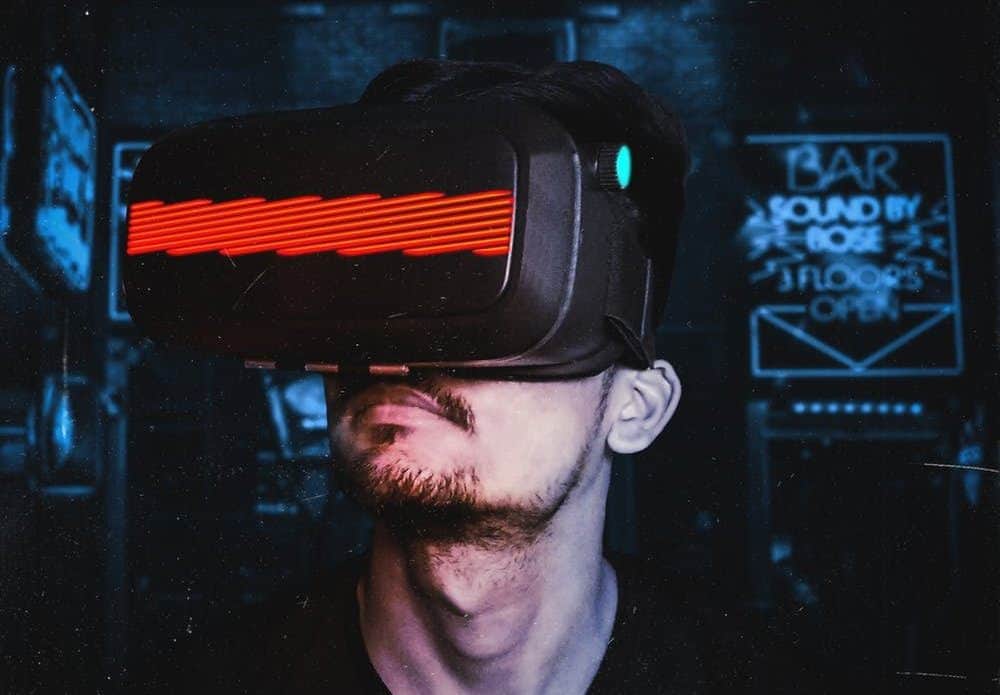Augmented Reality – commonly referred to as “AR”, allows us to blend elements of the virtual and the physical world. With this we may create new possibilities for what we feel, hear and see. Augmentation allows us to get more out of our surroundings by letting us superimpose digital information over objects in the real world.

Although in the past we’ve seen this technology being dedicated to gaming companies, I have previously also written about their expansion to education, healthcare, surgery, retail, wearables and even the military. We can safely say that augmented reality has become responsible for many fascination advancements in modern technology.
Even though VR and AR are separate, they’re often used interchangeably by many. To avoid confusion, we’ll follow the emerging industry term and refer to them collectively as “XR” extended reality.
The XR market is sky-rocketing. According to Statistia, the market size is expected to rise from an estimated $6.1 billion in 2016 to $215 billion by 2021. This is good news for anyone interested in breaking into the industry and putting bread on the table.
Although this technology is particularly new, demanded for skilled XR professionals is rapidly increasing as consumer and industry technologies are rolled out.
Of course creating these environments takes technical know how and creativity. Here is how you can enter the world of AR and get paid for your efforts.
Background and skills

While there is a growing variety of AR positions available, we’ll focus on development and management. At this time, employers are looking for XR developers with two to three years of experience. This is within the scope of developing responsive applications, especially 3D animation development, typically within Agile Scrum engineering teams. Some employers look for developers with additional design skills.
To have a shot, you’ll need to have intermediate to advanced skill in at least one XR platform domain, such as Unity. Coding expertise in C#, C++, Java or similar programming language will also be expected.
With different projects an additional background in motion capture, gesture recognition, networking, math and simulated physics may be necessary. Employers will ask for a bachelor’s degree in computer science, software engineering or equivalent qualifications.

Project management (Aka The lead, computer vision manager or innovation lead) will require experience of work on previous XR projects, commonly as a developer or engineer. Employers seek individuals with strong backgrounds in overseeing technology projects through the development life cycle, from inception to viable product. They prefer to hire people with broad knowledge and an affinity for emerging technologies, trends, and industry standards.
A bachelor’s degree in computer science, engineering or a related discipline is commonly required, along with about 5 years of professional experience. Project managers in any industry need strong communication and writing skills and exceptional leadership capabilities.
If you’re looking to work in the public; federal government, Military or contractor, you must qualify for a security clearance regardless of the intended role.
Who will hire you?
Facebook, Google, Snap (Snapchat), NVIDIA and HTC are some of the biggest players in the XR market. LiknkedIn Jobs (is currently one of the best sites for XR jobs) and Indeed.com for “virtual reality < job role> ” or ” augmented reality < job role>” will turn up hundreds of jobs. Currently more on the VR side than the AR side, but this may change.
If you’re interested in working with smaller companies, consider looking for local tech meetup groups focusing on XR or (Artificial intelligence). This can be a great source for networking in general and will no doubt allow you to find local openings. If you would like more of a digital nomad lifestyle consider looking for freelance work on websites such as Upwork.
Types of Jobs and Salaries

What can you hope to earn in a given year?
The average U.S. salary for an XR professional is within the range of $75,000 to $80,000, and $200,000 at the top end. This covers a wide range of job roles. Indeed.com breaks down the salaries by popular technical job roles:
$91,865 for developers
$106,673 for mobile developers
$107,212 for solution engineers.
Of course these are average statistics with numbers going up as high as $250,000 and as low as $26,000.
Development

While development will certainly be the primary role for those looking to break into the industry, it won’t be the only one. Developers working on XR often collaborate with software designers and 3D arts. Because this is such a technical field it’s also not uncommon for developers to be in close contact with design architects and engineers who plan and manufacture the necessary hardware to support the software.
Project Management

This is another growing job in the XR field. The purpose of the project manager is to oversee and coordinate entire teams of development, communicate vital information to other business units and work with clients.
Beyond this, there’s a marketing, sales and distribution wing which brings the XR products to market and puts them in the hands of consumers.
System Validation Engineers

System validation engineers are required to test and resolve any technical issues. Collaborate with Developers whenever necessary to execute modifications, and ensure that everything is running smoothly.
Getting Started In AR
Remember what was said about degrees and years of schooling. Well take it with a grain of salt. Although many still require you to be formally educated, the need and specific requirements for these positions are quickly outpacing the amount of people coming out of school with all necessary requirements.

Learning
Because education has become more open source, a connection to the internet is all that you need to begin learning or sharpening skills that will forge you into an XR maverick. Courses taught through MIT opencourse, EDX, Udemy, Coursera, etc, will teach you the skills you need to know. Keep in mind however, that many employers still require degrees in addition to showcasing practical ability.
If you posses programming skills and are looking to get into XR, start here. Consider learning Unity ( a cross-platform game engine with a built-in IDE. Used to develop video games for web plugins, desktop platforms, consoles and mobile devices). The company presents free documentation, allowing you to go through a set of free tutorial and live training, all from the comfort of your own home.
Practice, Practice, Practice

Consensus from experts is this: get started now, try as many devices as possible, begin building things. By doing this, you’ll be able to genuinely understand the necessary elements of the process: from the idea to project planning, to design and development, to beta testing, to public launch. Even if you can’t code, creating basic VR experiences from scratch will arm you with practical experience which will set you apart from other applicants.
If you already posses programming skills, Great! Consider learning Unity. The company offers a lot of free content in addition to free tutorial and live videos that will train you from the comfort of your home.
Besides the time investment, you’ll need to purchase a headset to test your programs and explore the environments you create.
Last but not least, practice! Practice until you have a solid understanding of how everything comes together and become comfortable with XR development. Following this, you’ll be able to create a portfolio that will showcase your best work.
